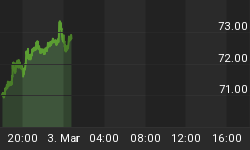The European Union has been desperately trying to implement a plan to get tech companies that generate billions of dollars online to pay more taxes. But with a plan to impose a bloc-wide tax regulation on digital companies beginning to flounder, some countries are abandoning a global solution and pushing their own national schemes.
One such country is Austria, which has now jumped into the bandwagon and vowed to tax tech giants in a move similar to France’s recently announced GAFA tax on Google, Apple, Facebook and Amazon.
On Saturday, Austrian Chancellor Sebastian Kurz announced plans to impose taxes on large internet companies with the basic framework of the scheme to be unveiled during a government summit in early January. It’s feared that Kurz’s proposal could become reality as early as 2020.
EU Tax Deal Near Collapse
The European Commission estimates that internet companies get away with a breezy 8-9-percent corporate tax rate for profits generated within the EU compared to 23 percent average for traditional companies within the bloc.
Some pay nothing at all.
France was the first European country to moot the idea of a regional digital tax when it proposed a comprehensive digital service tax (DST) that would cover all 28 EU member states. Ireland, The Czech Republic and several Nordic countries, however, shot down the idea, arguing that it would exacerbate EU-US trade relations.
Ireland is a famous corporate tax haven that has managed to woo many tech companies and American multinationals due to its remarkably low tax rates. Ireland’s “headline” tax rate of 12.5 percent is already low even by EU standards—the four percent effective tax rate (ETR) paid by foreign multinationals on global profits shifted to the country via its global network of bilateral tax treaties is among the lowest anywhere in the world. Related: Japan Regains Bitcoin Crown As Yen Trading Volume Soars
Other EU members are looking out after their own interests, too. Germany, for its part, wants an OECD-backed global deal but is open to a 2020 EU tax deal as long as it does not affect carmakers (Germany is the world’s largest car exporter accounting for 21.3 percent of total exports).
And just like Ireland, Sweden won’t put pen on paper until the proposed deal is anchored on a global tax framework.
Vienna, Paris Want More Money
The aim of Vienna and Paris is simple—to collect digital taxes from companies like Facebook, Google and Amazon that generate huge profits online but hardly pay any taxes on them.
With a regional deal looking increasingly unlikely, member states are now hatching their own initiatives to collect digital taxes. Once again, France is leading the new charge, and might start collecting internet taxes as early as Jan. 2019.
In early December, the country’s Economy Minister, Bruno Le Maire, said France was willing to give the EU until March 2019 to come up with a comprehensive deal to tax US internet giants. But just 10 days later, he changed tact and said the country was imposing its own tax on the large internet and technology companies starting Jan. 1 due to difficulties in implementing an EU-wide levy. Le Maire reckons the new tax will raise €500 million ($570 million) in its first year.
It’s not clear how much tax rate France or Austria will levy, though it might not be far from the three percent that France and Germany had earlier proposed as an alternative plan at a meeting with EU finance ministers. Let’s just say that companies like Facebook and Google will likely be happier giving up three percent of their EU profits than having to comply with the bloc’s recently enacted and extremely harsh private data laws aka GDPR.
By Alex Kimani for Safehaven.com
More Top Reads From Safehaven.com

















